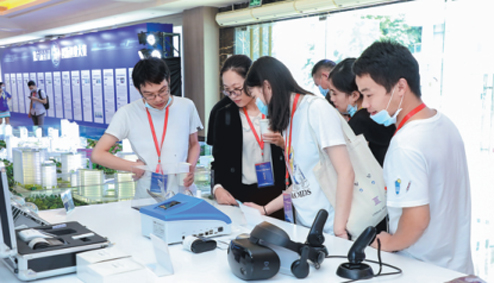Innovative projects awarded in Guangzhou
More companies and startup businesses are making breakthroughs in core technologies and utilizing nanotechnology to develop industries, organizers said.
During the competition, a national nanotechnology lecture was held with academicians of the Chinese Academy of Sciences delivering speeches on topics including cultivating nano industrial leaders and the application of graphene and single-layer materials.
"With more than 20 years of development, China has seen great progress in the fundamental research of nanotechnology, with some sectors ranking top in the international arena," said Zhao Yuliang, director at the National Center for Nanoscience and Technology.
"However, there are still a number of research achievements that remain in papers and patents that have not been commercialized," Zhao said.
The future development of Chinese nanotechnology requires strengthened integration of fundamental research and industries, Zhao said.
The competition is an opportunity to encourage the commercialization and application of scientific results, he added.

Attendees view a range of Nano technology products at the sixth Nano Star innovation and entrepreneurship competition. CHINA DAILY
It is the first time the Nano Star innovation and entrepreneurship competition has been held in Guangzhou High-Tech Industrial Development Zone.
The zone is home to a group of top research institutes and boasts strong research and development resources, said Li Xiaojun, director of one of the winning teams.
It has created strong and feasible policies for supporting the development of high technologies, Li said.
As of 2021, the event will be included in the China Innovation and Entrepreneurship Competition.
Last year, Guangzhou High-Tech Industrial Development Zone cooperated with the National Center for Nanoscience and Technology to launch the national nanotechnology innovation research institute of the Guangdong-Hong Kong-Macao Greater Bay Area.
Focusing on technological innovation, the institute is designed to be an international commercial base for nanotechnology and to promote the coordinated development of the upper, middle and lower reaches of the innovation chain.
In last December, the zone issued a guideline on promoting nano industry development via incentives to improve planning, industrial layout and attract more talents.



 Print
Print Mail
Mail

